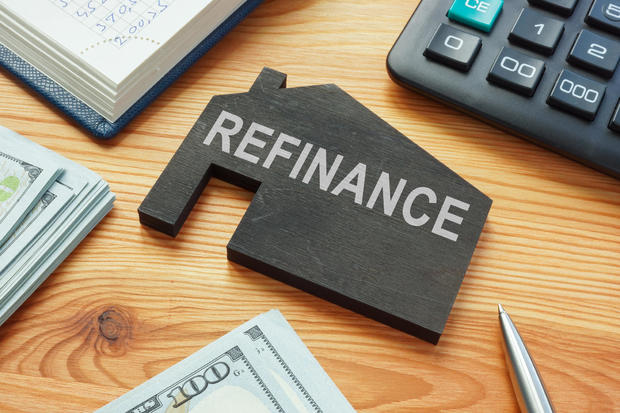Is mortgage refinancing worth it now? Here's what experts think
Mortgage interest rates have been trending upward yet again. As of July 6, the average fixed rate on a 30-year mortgage was 6.81% — a high not seen since October 2002, aside from the brief spike in late 2022.
But can refinancing a mortgage still make sense for homeowners, despite the current rates? Here's what mortgage experts have to say.
See today's current mortgage refinancing rates here.
Why might you want to refinance your mortgage now?
"The same considerations apply to refinancing in today's market as in other market trends. It's a good idea to refinance when doing so brings you a net benefit," says Joel Ohman, a certified financial planner and the CEO of InsuranceProviders.com.
Ohman adds, "It's harder to achieve that benefit when the interest rates are high, so fewer people are refinancing now than they were a few years ago. Still, there are some excellent reasons to refinance."
Here's a look at a few examples of when it can still make sense to refinance your mortgage, despite the high rates.
If you can get a lower rate than you have
The mortgage interest rate you get depends on a variety of factors beyond market trends, including the size of your down payment, your loan type, your credit score and the cost of the home. As a result, higher average rates nationwide don't necessarily mean you'll get a higher rate.
"If you've improved your credit score since getting your loan, for example, refinancing may help you secure a better interest rate. A higher credit score demonstrates greater creditworthiness to lenders, resulting in more favorable loan terms," says Adam Garcia, financial consultant and CEO of the Stock Dork.
By getting quotes from a few mortgage lenders, you can see if a lower rate is available to you.
Compare your refinancing options online now.
If you can drop mortgage insurance and save
Refinancing now may also make sense if doing so will allow you to drop mortgage insurance.
Private mortgage insurance (PMI) typically costs 0.2% to 2% of your loan amount per year and is required on conventional loans when you put down less than 20%. While you may be able to have PMI removed from your existing loan once you've reached 22% equity, refinancing requires an appraisal which can also result in a new loan without the PMI requirement.
"Keep in mind, though, that if your current interest rates are lower than what's available today, you may be better off continuing to pay your PMI," says Ohman.
Most FHA loans also require an annual mortgage insurance premium (MIP) for 11 years or the life of the loan, which costs anywhere from 0.15% to 0.75% of your loan amount. If you have an FHA loan and at least 22% equity, it may make sense to refinance to a conventional loan and drop the MIP if it will lower your overall costs.
If you can refinance into a fixed-rate mortgage
"Refinancing can also provide an opportunity to switch from an adjustable-rate mortgage to a fixed-rate mortgage, offering stability and protection against future interest rate increases," says Loren Howard, the founder of Prime Plus Mortgages.
Fixed-rate mortgages allow you to lock in your current rate and enjoy predictable monthly payments that won't fluctuate throughout your term. However, while they can prevent your loan payments from increasing, they can also prevent them from dropping when rates drop.
Check out current mortgage refinancing offerings here to see if they're right for you.
If you have equity you'd like to cash out
Refinancing your mortgage can be helpful if you have a significant amount of equity you'd like to borrow against.
A cash-out refinance "can be beneficial for home improvements, debt consolidation or other financial needs," says Garcia. "If you have multiple high-interest debts, such as credit card debt or personal loans, consolidating them through refinancing can be a wise decision."
He adds, "Refinancing these debts into a single loan with a lower interest rate can simplify your payments and potentially save you money on interest payments."
Should you refinance your mortgage now?
Whether or not you should refinance your mortgage now is a personal decision that must be made on a case-by-case basis. A good place to start is to get quotes to see what rates and terms are available to you. Be sure to note the closing costs, which tend to run from 2% to 6% of your loan amount.
From there, compare the offers to your current loan to see if a new loan offers any advantages. If you have any doubts or questions, it can be helpful to run the decision by a reputable financial advisor.




